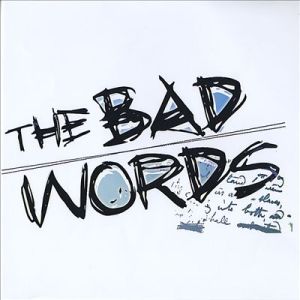It’s no secret that words hold huge power. Everything from declaring your undying love for someone to accidentally calling your hot neighbour with a hair-loss complex “bald” rather than “Bob”. The old missive “sticks and stones may break my bones, but words will never hurt me” is well-intentioned bollocks. Words can do untold damage if used carelessly. And not only when they’re uttered by other people. You can hurt yourself and also limit yourself by using certain words and phrases.
I’m not just talking about stuff like, “I’m rubbish/ugly/a failure” – obviously they’re far from great and won’t make you feel like high-fiving strangers in the street – but there are other words that routinely sneak under the radar and punch you in the stomach without you even realising. Seemingly totally innocuous phrases can affect your mood and your behaviour dramatically.
Here’s an example (drum roll please): “should“.
Looks harmless enough, right? WRONG. If you suffer from low mood, low self-esteem or are generally quite hard on yourself it’s likely that you’ll try to motivate yourself with “shoulds” and “shouldn’ts” as if you need to be whipped or punished. “I should have smiled when I saw her. Now she’ll think I’m a grumpy arse”/ “I shouldn’t have smiled when I saw her. Now she’ll think I’m a gormless idiot.”
When referring to events in the past “should” and “shouldn’t” suggest a missed opportunity – something you did wrong. However, if you just swap them for the far more positive “would” or “will” it’ll make a huge difference to how you perceive the event. “It would have been good to smile/not smile at her. I will/won’t do it next time.” This way you’re not just dwelling on the situation, you’ve assessed what happened and made plans for the future from what you now know.
Two US business schools looked into ‘self-talk’ of this kind with fascinating results. The study focused on the different ways we say “no” and what effect our choice of words have on how we feel and act. They focused on the phrases “I can’t” versus “I don’t”. They split a group of students into two, asking one half to say “I don’t” when faced with temptation while the other group would say “I can’t”.
At the end of the briefing everyone was offered either a chocolate bar or a granola bar as a gesture for taking part. Of those in the “I can’t” group 39% went for the healthier choice. Of those in the “I don’t” group 64% went for granola.
Why such a disparity? Because saying “I can’t” implies an external restriction that you have to obey – even if you’re the one that set the restriction in the first place. You’re actually saying, “I can’t, but I’d bloody like to” meaning “can’t” becomes synonymous with restriction and negativity. Even if you’re not saying it out loud just thinking “I can’t” will make you feel under pressure to act a certain way. You might even deliberately do the thing you were trying not to do just to prove to yourself and others that you can – to give a big two fingered salute to the “you can’t do that” overlords, whoever they might be.
If you were asked to go sky diving in a blizzard you wouldn’t say, “Ooh, I can’t,” you’d say, “I don’t want to, thanks.” The latter is intrinsically more positive and assertive than the former. “I don’t” inspires feelings of independence and confidence because you have made a choice and are suggesting a pattern of behaviour: that isn’t something I do.
Try it. Swap “I can’t” for “I don’t” for one day: “I don’t miss my gym class”/ “I don’t procrastinate”/ “I don’t eat two muffins one after the other when I’m not hungry”. You’ll feel like you’re taking control of your decisions. Rather than being someone who can’t do something, you don’t because you’ve chosen not to. Also, get rid of any “shoulds” or “shouldn’ts” when assessing past events or making plans for the future. Swap them for “could/would/can/will”. You’ll feel more positive about future choices as you won’t be punishing yourself for so-called “mistakes” or adhering to unwritten rules, but taking what you know and moving on.
Read more on the “I can’t” vs “I don’t” study here and Oliver Burkeman wrote a great piece on it here.

